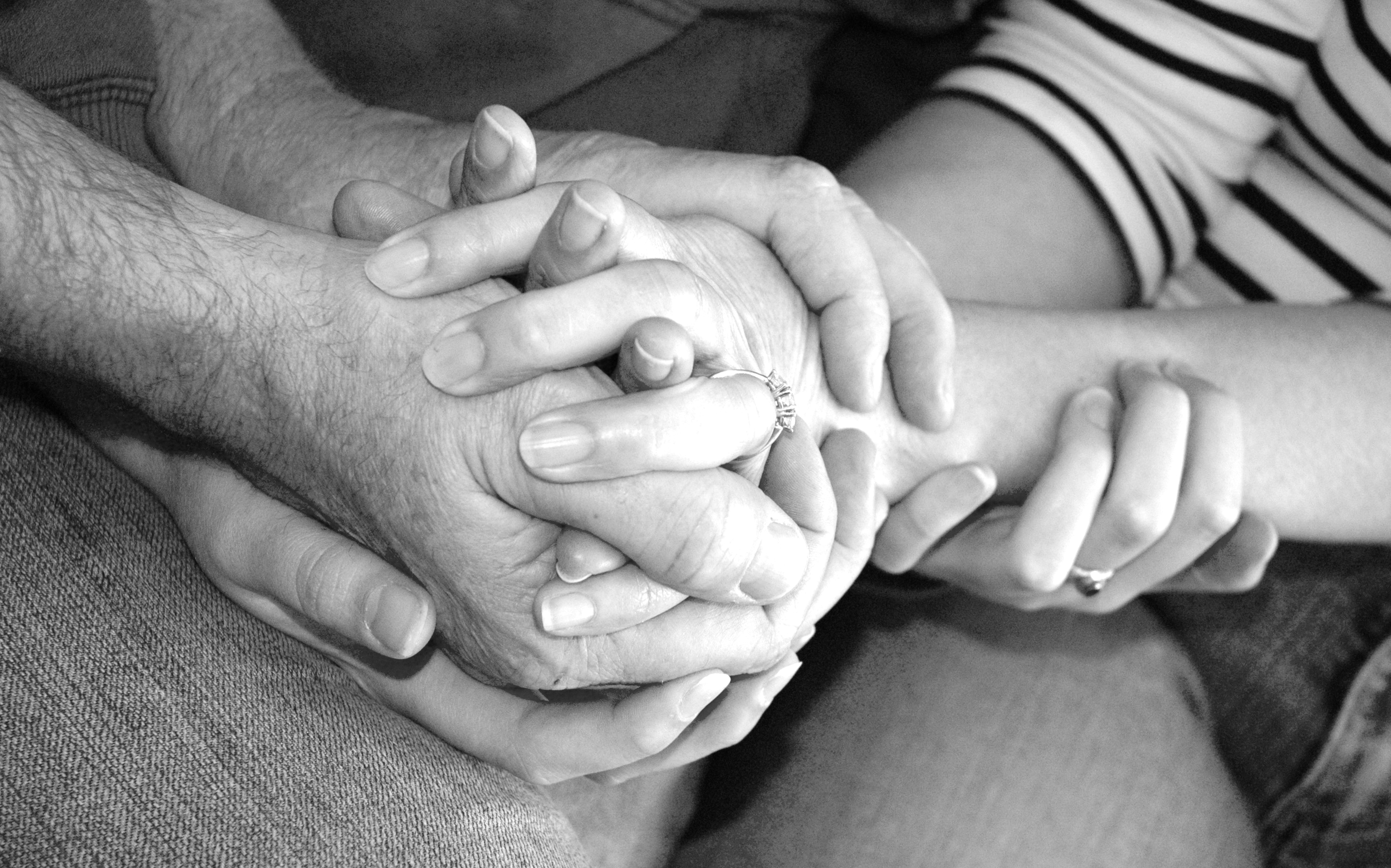Grief and loss are profound experiences that alter the fabric of our lives, weaving a complex tapestry of emotions, memories, and heartache. The grieving process is often filled with unpredictable waves of sorrow and moments of reflection, each wave serving as a reminder of what has been lost. Dealing with loss requires not only time but also a deep understanding of oneself and the support systems available, such as bereavement support groups. As we navigate through our memorial reflections, we must learn to cope with grief, turning to ways that honor those we loved without forgetting the richness they added to our lives. Ultimately, embracing the full spectrum of our emotions can facilitate healing and allow us to cherish the memories left behind while forging a path forward.
The emotional journey following the death of a loved one can be characterized by a myriad of feelings and experiences surrounding the theme of bereavement. When faced with the absence of someone dear, individuals often struggle with the painful reality of saying goodbye, a process that can feel overwhelming. In this context, it becomes essential to seek out means of emotional support and to discover ways to express sadness while also celebrating the life of the departed. The act of cultivating a safe space for personal reflection allows us to honor memories and confront our emotions surrounding such significant loss. Ultimately, understanding the intricacies of mourning helps individuals find peace amid the chaos of grief.
Understanding the Grief Process
The grieving process is a unique journey that varies from person to person. It encompasses a range of emotions and experiences that can manifest as shock, anger, guilt, and ultimately acceptance. When we face the loss of a loved one, we may find ourselves navigating through a roller coaster of feelings that can leave us disoriented and searching for meaning in our pain. Understanding the cycles of grief can provide insight into what we are experiencing, allowing us to process our emotions in a healthy manner.
One of the most important things to remember during this time is that it is entirely normal to experience a wide array of emotions. Denial is often the first stage, where individuals refuse to accept the reality of their loss. As the process unfolds, anger may surface, directed at themselves, others, or even the deceased. Acceptance does not mean forgetting, but rather finding a place for the loss within our lives. This journey is not linear, and understanding that it takes time can help ease the pressure we put on ourselves to heal quickly.
Coping with Loss: Techniques and Strategies
Coping with loss is essential for emotional healing. Different strategies can assist individuals in managing their grief, allowing room for healing and acceptance. One effective method is to engage in memorial reflections. This could involve creating a scrapbook, holding a memorial service, or planting a tree in memory of the loved one. Such activities not only honor the deceased but also provide a tangible way to express feelings and commemorate their life.
Another vital aspect of coping is seeking bereavement support. Connecting with others going through similar experiences can offer a sense of understanding and comfort. Support groups or therapy provide safe spaces to share emotions and experiences without judgment. Learning to communicate feelings and thoughts about loss can alleviate feelings of isolation, reminding those grieving that they are not alone.
Memorial Reflections: Honoring memories
Memorial reflections serve as a powerful tool for honoring the memory of a loved one. Engaging in these activities can provide a sense of peace and connection that is often needed in the aftermath of loss. Individuals may choose to reflect through writing, personal storytelling, or artistic expression, allowing emotions to flow freely and honoring the life lived. These reflections can become cherished keepsakes, offering comfort during tough moments.
Moreover, sharing memories with friends and family allows collective grieving, reinforcing bonds while remembering the likeness of the departed. Lighting a candle, sharing favorite stories, or creating a dedicated space in the home can all serve to honor the deceased. Such acts invite not only healing but also promote a celebration of life, reinforcing that while loss is painful, the love shared endures.
Grief: The Silent Journey
Grief is often described as a silent journey, one that many undertake alone even in the crowded company of others. This is because the pain of loss can feel overwhelming, isolating those who are grieving. It’s essential to recognize that grieving is a personal experience, and just as each love story is unique, so too is each journey through grief. It might feel as though sharing this struggle will burden others, yet opening up about the experience can often lead to support and understanding.
Moreover, the societal expectations surrounding grief can amplify feelings of loneliness. Spaces for expression and understanding become vital, ensuring individuals feel seen and heard during this challenging time. Writing about feelings, speaking with a therapist, or simply confiding in trusted friends can provide an avenue to process grief without fear of judgment. Embracing the silence while finding ways to communicate the depths of that silence can ultimately aid healing.
Navigating Life After Loss
Navigating life after loss is an incredibly daunting task. In the aftermath of a loved one’s passing, routines may feel disrupted, and the world can seem less vibrant. This shift can prompt feelings of disorientation and confusion as individuals begin to adjust to a life without their loved one. It’s critical to allow oneself the grace of time. Healing does not follow a strict timeline, and embracing this truth can ease the navigation through daily activities without the presence of the deceased.
As you begin to find your footing, establishing new routines can be beneficial. This might include reaching out to friends, joining community groups, or rediscovering hobbies. Engaging with the world, even in small ways, fosters a sense of connection and purpose, gradually reintegrating emotions back into daily life. Acknowledging the emptiness while allowing joy and laughter to re-enter life does not diminish the memory of the loved one; rather, it celebrates their life in an ongoing journey.
Community Support in Bereavement
Community support plays a critical role in the bereavement process. When faced with loss, many people find solace in the presence and shared experiences of others. Community can take many forms—friends, family, formal groups, or online forums. Each offers a unique space where individuals can express their grief, receive validation, and find comfort in knowing that they are not alone in their experiences.
Moreover, communal gatherings can be incredibly therapeutic. Events such as potlucks, group walks, or other forms of shared remembrance activities help individuals to engage with their memories collectively. This not only honors the deceased but facilitates healing as individuals share in the weight of the loss. Building a support system can foster deeper connections with others while navigating through pain, reinforcing that healing is often found through shared experiences.
Finding Peace Amidst the Grief
Finding peace amidst the grief is often seen as an elusive goal for many who are reeling from loss. It is essential to recognize that peace does not mean forgetting or moving on; instead, it means finding a way to coexist with the feelings of loss while creating new synergies with life. Mindfulness practices, such as meditation or yoga, can be significantly beneficial. They encourage individuals to sit with their emotions rather than suppress them, allowing the process of acceptance to unfold organically.
In pursuing peace, individuals may also find solace in nature. Being outdoors, surrounded by the beauty and tranquility of the natural world, can provide a respite from intense feelings of grief. It allows for reflection and connection, reminding individuals of the cycle of life and death. Engaging with those feelings can help cultivate a space of peace and understanding, allowing the power of love shared with the deceased to be recognized and honored.
Reconnecting with Joy After Grief
Reconnecting with joy after grief can feel daunting, but it is an essential part of the healing process. Initially, joy may seem like a distant memory, overshadowed by pain and mourning. However, allowing oneself to embrace moments of happiness—no matter how fleeting—can empower one to reclaim life after loss. This could start by acknowledging small pleasures, such as a favorite meal, a walk in nature, or time spent with friends and family.
Furthermore, integrating joy doesn’t diminish the memory of the lost but rather serves to honor the life they lived. Experiencing laughter again can reinstate the idea that life continues, and it reflects the love shared in living, contrasting the feelings of grief. Engaging actively with social activities or creating new traditions in memory of the loved one can help facilitate this transition, gradually allowing joy back into the heart.
The Importance of Self-Care in Grieving
In the grieving process, self-care often takes a backseat, with the focus shifted to external obligations and navigating all that accompanies loss. However, prioritizing self-care is crucial for healing and emotional well-being. Simple practices such as maintaining a balanced diet, engaging in physical activity, and ensuring adequate rest can support mental health during this challenging time. Taking time for self-reflection and indulging in comforting activities can also provide moments of respite from grief.
It’s equally important to engage in self-compassion. Being gentle with oneself and allowing time for healing without judgment can create a nurturing space for emotions to flow. Therapeutic practices, such as journaling or connecting with therapists specializing in grief, can equip individuals with tools needed for self-care. Ultimately, prioritizing oneself validates the unique journey of grief and acknowledges that taking care of one’s mental and emotional health is vital for thriving alongside pain.
Frequently Asked Questions
What is the grieving process after experiencing grief and loss?
The grieving process is a natural and necessary response to loss, particularly after losing a loved one. It often includes stages such as denial, anger, bargaining, depression, and acceptance. Each person experiences grief differently, and some may move back and forth between these stages. Understanding that this process is unique can help individuals cope with grief and find their own way to heal.
How can I effectively cope with grief and loss?
Coping with grief and loss involves acknowledging your feelings, reaching out for support, and allowing yourself time to heal. Engaging in memorial reflections can be beneficial, as honoring the memory of your loved one can aid in the healing process. It’s crucial to seek bereavement support, whether through professional counseling, support groups, or conversations with friends and family.
What are some strategies for memorial reflections during the grieving process?
Memorial reflections can include creating a scrapbook, writing letters to your loved one, or establishing a memory garden. These activities allow you to express your feelings and celebrate the life of the person you’ve lost. Sharing stories and memories with others who knew them can also enhance these reflections and help you cope with your grief.
Why is bereavement support important during the grieving process?
Bereavement support plays a vital role in the grieving process as it connects individuals with others who understand their pain. This support can provide comfort, facilitate healing, and offer practical advice on coping with grief and loss. Whether through structured support groups or informal conversations with friends, sharing the journey can help alleviate feelings of isolation and provide reassurance.
How long does the grieving process last when dealing with loss?
The duration of the grieving process varies significantly from person to person and depends on factors such as the relationship to the deceased and individual coping mechanisms. While some may begin to feel better within months, others might take years to fully process their grief. It’s important to allow yourself to grieve for as long as you need, respecting your unique timeline.
What role do cultural practices play in the grieving process?
Cultural practices can shape how individuals and communities manage grief and loss. Rituals such as memorial services, anniversaries of death, and specific mourning customs provide frameworks for expressing grief. Engaging with these practices can offer comfort and a sense of connection to both the deceased and the community, facilitating the grieving process.
How can I help a friend who is coping with grief and loss?
Supporting a friend who is coping with grief involves being present, listening without judgment, and allowing them to express their emotions. Offer practical help, such as running errands or preparing meals, and encourage them to share memories of their loved one. Respect their grieving process and avoid imposing timelines for when they should feel better.
What is the importance of allowing oneself to grieve thoroughly?
Allowing oneself to grieve thoroughly is crucial for emotional health. Suppressing grief can lead to unresolved feelings and prolonged sorrow. By embracing the full spectrum of emotions, individuals honor the love they had for their loved one and find a path toward healing. It’s essential to create space for grief to ensure that it doesn’t manifest in unhealthy ways later.
What can I do if I’m feeling overwhelmed by my grief and loss?
If feelings of grief become overwhelming, it’s important to reach out for support. Consider talking to a mental health professional specialized in grief counseling. Engaging in stress-relief activities such as meditation, exercise, or journaling can also help manage emotions. Remember, you don’t have to go through this alone, and seeking help is a strong step toward healing.
| Key Points |
|---|
| Tony Horwitz, Geraldine Brooks’ husband, passed away unexpectedly, leading to a profound exploration of grief. |
| In the moments following his death, Brooks struggled to accept the reality, highlighting the shock and disbelief often felt in such situations. |
| Brooks reflects on the societal expectations of grief and the personal toll of suppressing her emotions in public. |
| She emphasizes the importance of creating space to grieve, taking time to honor her lost love, and acknowledging her pain. |
| Brooks seeks solace on Flinders Island, a place for solitude and reflection, indicating the need for a personal retreat when dealing with loss. |
Summary
Grief and loss are profoundly personal and often isolating experiences. Geraldine Brooks’ journey through the unexpected death of her husband Tony Horwitz illustrates this struggle. She confronts the harsh reality of navigating her emotions in a world that often pushes individuals to move on quickly. By allowing herself to grieve and seeking solitude, Brooks highlights the essential process of confronting loss rather than suppressing it. Ultimately, her story serves as a reminder of the importance of honoring our feelings and understanding that grief can shape our existence in intricate ways.



